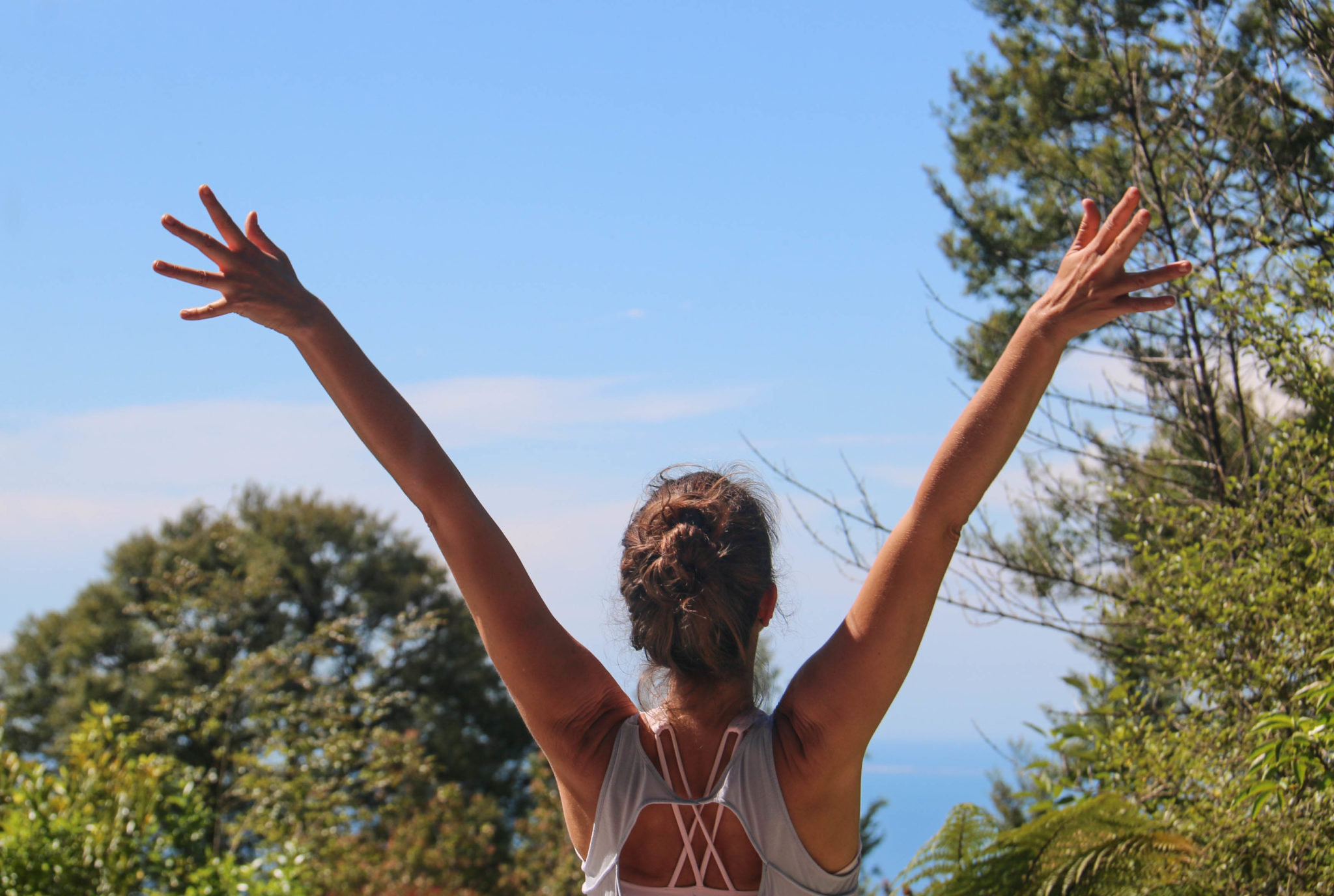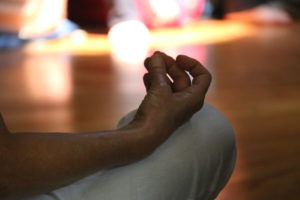
INSPIRATION FOR SELF-REFLECTION
In the past, society lived with a far greater awareness of the seasons. In the modern world, living in line with the seasons has become a lot more challenging. With the increased frequency of travel, the hyper-stimulation of technology and the over-accessibility of imported foods in supermarkets it can be tricky to slow down and go inwards. So, as we move into the second half of this year and the colder weather sets in (or the warmer weather in some cases), we want to offer you some helpful yogic tools to navigate the seasonal changes and cultivate vitality.
Seasonal living
Different seasons can influence both our physical and mental states. Winter is a quieter time and a place of potential. A time to slow down, to rest, reflect and prepare. It is an opportunity to grow and foster new ways of being and put in the self-work so that when the weather gets warmer, we can enter into full bloom. Summer on the other hand is a time of extroversion and dynamic energy. However, in modern times we have the tendency to over exert ourselves and become depleted. Thus, it is important to maintain balance and increase self-awareness regardless of the season. Yogic practice can help us get there.

Yamas & Niyamas: Patanjali’s Eightfold Path of Yoga
Prior to 400 CE Sage Patanjali presented an eightfold path, the first systematic approach to yoga. The first four stages of Patanjali’s yoga path concentrate on refining our personalities, gaining mastery over the body, and developing an energetic awareness of ourselves, all of which prepares us for the second half of this journey; which is about dealing with the senses, the mind, and attaining a higher state of consciousness.
The Yamas and Niyamas are the first two steps of this path. They come even before asana practice. The word Yama comes from the root ‘yam’ and means self-control and restraint. Its purpose is to harmonise the external and social environment and our responses to it. The second limb is the Niyamas, which are internal codes of conduct including observances or guidelines for personal discipline relating to our yoga practice and lifestyle.
This June, at Anahata Yoga Retreat, we are working with 4 Niyamas to help guide us as we hit the mid-year mark. Each Niyama serves as a theme for the week and also as an opportunity for reflection. The Niyamas can help us bring tranquillity to the mind in preparation for meditation and also inspire us to connect with ourselves by going into a quiet and reflective space. As we take a closer look at each Niyama, allow them to inspire you and join in the weekly practice with everyone at Anahata.
Week 1: Saucha- Cleanliness
The theme we are working with for the first week is Saucha which translates to cleanliness. Impurities in both our external environment and our internal body have a negative impact on our mind and emotions and hinder the advancement of our spiritual practice. Saucha comes from cleanliness of the body (both external and internal), purification of the mind and also by keeping a tidy and orderly environment.
This week focus on:
- Doing a regular Hatha Yoga practice- Hatha Yoga is designed to help with purification by moving blood and lymph through the body. You may like to do 3-7 rounds of Salute to the Sun each morning this week.
- Eating healthy food and nourishing your body- Try making a warm vegetable soup and maybe even detox yourself from coffee or sugar for the week to give your body a break. Enjoy this recipe for our Vegetarian Shepherd’s Pie.
- Practicing mental purification- Observe your thoughts and see if you can keep your mind clean and clear. Ask yourself what you need to let go of to do this. Perhaps try the practice of Antar Mouna (Inner Silence Meditation) to raise your awareness and direct your mind.
- Decluttering and cleaning your space- Internal purification comes hand in hand with external purification. Keep your space clean and make the effort to get rid of things you don’t need.
As you move through this first week remember to keep asking yourself: How can I ensure and protect the sanctity of the energy within and around me? Consider Saucha in all of your various environments throughout your day, including the people you associate with.
Week 2: Santosha- Contentment
This week we look at Santosha which refers to contentment. Contentment is a feeling of being satisfied and grateful for what you have. By developing Santosha and non-attachment we are freed from unnecessary suffering as our demands become fewer. Happiness gained through materialism is only temporary. Living with simplicity brings joy and happiness.
This week focus on:
- Practicing gratitude- Counting your blessings enables you to see all the gifts in your life. Try thinking about 10 things you are grateful for before bed each night or doing a blessing for every meal you eat.
- Using your breath- Connecting to the breath is the simplest way to become present and content. Try a regular Pranayama (Yogic Breathing) practice this week and if you catch yourself feeling aggravated throughout the day drop back into your breath.
- Honouring others in your life– Being content with those around you brings great levels of joy and harmony. Each day tell one person what you truly value about them.
During this second week observe Santosha in the various environments and people you associate with. Try to foster and sustain a feeling of contentment throughout your days.
Week 3: Tapas- Spiritual Austerities
This week we look at Tapas. Austerities develop self-discipline and willpower. As we live simply, we become more able to cope with hardships. When our will becomes stronger than our desires, we are released from mental and physical impurities resulting in a strong body and mind. Tapasya enables self-awareness and control over unconscious impulses, helping us to become more dedicated to our yoga practice. Tapasya can be physical or mental and it is important to be practical and simple to begin with. An example of an extreme Tapasya would be of a Yogi in India staying in silence for 1 whole year, however it can look completely different for those of us with different lifestyles. Regardless, doing something that challenges you can really help to strengthen your mind and body.
This week focus on:
- Forgoing a pleasure- What is something you really enjoy doing? Eating chocolate? Watching your favourite TV show? Always being the first in line? This week go without it. Let go of the attachment and see what arises.
- Practicing Mouna (Silence)- Holding silence can be tricky in a world full of mass communication and stimulation. This week try holding silence from 8pm-8am. Mouna means both internal and external silence. Make sure you log off of your devices, free yourself from distractions and keep your thoughts silent also.
- Strengthening your yoga practice- Try incorporating more challenging asanas or lengthening your practice this week. Work with your breath and hold asanas longer or extend your meditation for 10 more minutes.
For this third week be committed to your self-discipline. Observe reactions you may have when facing challenges and work through them. Consider Tapas in your environments and within the people you interact with.
Week 4: Swadhyaya-Self Study
For this final week the theme is Swadhyaya or self-study. Self-inquiry and personal analysis lead to knowledge of our own personality, including becoming aware of our strengths, weaknesses, ambitions and needs. Self-study can allow us to become mindful of conscious and unconscious motivations and to be more aligned with our true values. The yogic practice of Swadhyaya also involves the study of sacred and spiritual texts to guide us through our inner experience and our connection with the divine.
This week focus on:
- Exploring SWAN theory- SWAN theory (by Swami Niranjan) is an amazing tool for self-reflection. Choose one area of focus and make a list of the following: Strengths, Weaknesses, Ambitions and Needs. For more elaborate information on SWAN theory look at http://www.yogamag.net/archives/2000/esep00/swantheo.shtml
- Reviewing your day- Reviewing your day can help you assess and evaluate your spiritual progress. Each night this week reflect on your behaviour and actions and think about what you have done well and what still needs work. Remember to be compassionate with yourself and focus on positive growth.
- Reading a spiritual text- Set some time aside this week to read something uplifting that could inspire you on your path. Classical examples include texts like the Bhagavad-Gita or the Ramayana. You may also like to find another book on a person or topic that inspires you.
- Working with a sankalpa- Set an intention or realistic resolve to align yourself with your higher values. Make sure you work with this regularly until it is realised. For more information on Sankalpa look at http://www.yogamag.net/archives/2005/ajan05/sanknat.shtml
In this final week consider Swadhyaya in all of your various environments throughout your day, including people you associate with. Be attentive in your self-inquiry and self-study and be open to what emerges.

As you move through each week think deeply about each Niyama. Here are some further questions you might like to consider as you work your way through them:
- How can this Niyama be integrated into my daily life and overall lifestyle?
- How does this Niyama relate to my yoga practice?
- What are some yoga practices that can cultivate the values associated with this niyama?
- How can this Niyama be applied to teaching yoga?
- Who is an inspiring person that demonstrates this Niyama in my life?
Hopefully these guidelines can bring you inspiration and encourage you to live seasonally and in harmony with yourself. Think of them as practical yogic tools that allow you to journey inwards and generate awareness. Working with the Niyamas requires consistency, patience and self-honesty. The Yamas and Niyamas can be revisited time and time again, all year round. In fact, many of the suggested practices are more effective if maintained for longer periods of time and are useful to integrate into your daily life. As you join in with the Anahata Yoga Retreat team this June be sure to stay connected to us on Facebook and Instagram. We will be providing weekly encouragement and you will also have the opportunity to share your experience with us. Please visit our website for more information and access to many incredible guided practices to support you throughout the month. Happy transformation!



